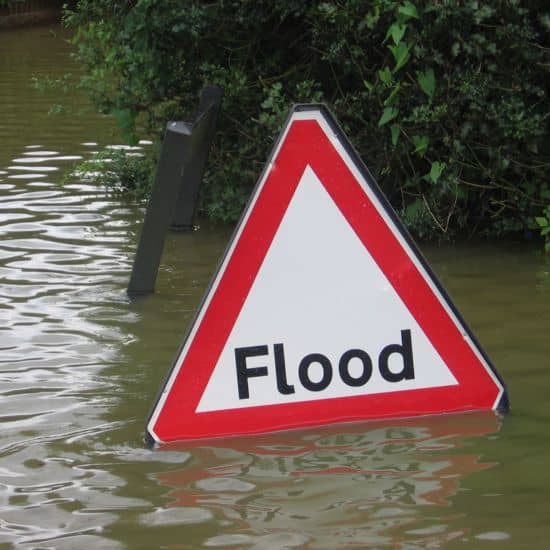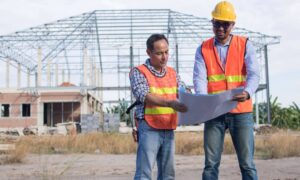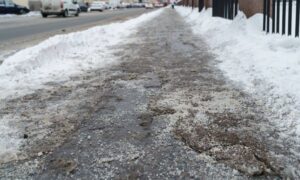
Flooding is one of the most destructive natural disasters, causing billions of dollars in damage every year. If you own property in a flood-prone area, it’s important to understand the risks and take the right precautions. Two essential tools that help homeowners, developers, and city planners manage flood risks are flood surveys and elevation certificates.
These documents provide valuable information about flood risks, influence insurance costs, and help ensure buildings follow federal, state, and local regulations. In this guide, we’ll explain what flood surveys and elevation certificates are, why they matter, and how they can help protect your property.
What Is a Flood Survey?
A flood survey is a professional assessment done by a licensed surveyor or engineer to determine a property’s flood risk. It includes:
✅ Mapping the land’s elevation to see how water might flow or collect.
✅ Classifying the flood zone based on FEMA’s Flood Insurance Rate Maps (FIRMs).
✅ Measuring the Base Flood Elevation (BFE)—the expected water level in a 100-year flood.
✅ Analyzing drainage to identify potential flooding problems.
Why Is a Flood Survey Important?
- Helps homeowners and builders decide where and how to build safely.
- Identifies if flood protection measures (like levees or drainage systems) are needed.
- Provides essential data for city planning and flood management.
- Supports the elevation certificate process, which affects insurance and legal compliance.
What Is an Elevation Certificate?
An Elevation Certificate (EC) is an official document that shows how high a building is compared to the Base Flood Elevation (BFE). It is usually prepared by a licensed surveyor, engineer, or architect.
What’s Included in an Elevation Certificate?
- The building’s elevation, including the lowest and next highest floors.
- Flood zone classification (determining if the property is in a high-risk area).
- Base Flood Elevation (BFE) and how the structure compares to it.
- Photos of the property, showing elevation points and key details.
When Do You Need an Elevation Certificate?
- For Flood Insurance – The National Flood Insurance Program (NFIP) may require one to calculate your insurance rates.
- For Building Permits – If your property is in a high-risk area, you may need an EC to build or renovate.
- For FEMA Map Corrections – If you believe your home was mistakenly placed in a high-risk flood zone, you can submit an EC to request a Letter of Map Amendment (LOMA) and possibly remove the insurance requirement.
How Flood Surveys & Elevation Certificates Affect Insurance Costs
1. They Determine Your Flood Insurance Premium
FEMA and private insurers use elevation data to set insurance prices. If your home is above the Base Flood Elevation (BFE), you may qualify for lower premiums. Homes below the BFE usually pay more.
2. They Can Help Lower or Eliminate Insurance Costs
If your property was incorrectly placed in a high-risk flood zone, an elevation certificate can help challenge that classification. If approved, you may no longer need flood insurance.
3. They Ensure Compliance with FEMA and Local Rules
Many local governments require an elevation certificate before approving construction in flood-prone areas. Following these rules helps keep properties safer during floods.
The Role of Flood Surveys in City Planning & Development
1. Floodplain Management & Zoning
City officials use flood surveys to create zoning laws that prevent buildings from being constructed in high-risk areas. This helps protect communities from major flood damage.
2. Infrastructure & Drainage Planning
Accurate elevation data helps engineers design roads, drainage systems, and levees in the best locations to control water flow and reduce flood risks.
3. Real Estate & Property Values
Flood risk affects property value. Buyers and sellers use flood surveys and elevation certificates to determine whether a property is at risk and how much they might pay for insurance.
How to Get a Flood Survey & Elevation Certificate
1️⃣ Hire a Licensed Surveyor – Make sure they specialize in flood risk assessment and FEMA regulations.
2️⃣ Request a Flood Survey – This includes mapping your property, analyzing drainage, and measuring the Base Flood Elevation.
3️⃣ Obtain an Elevation Certificate – Your surveyor will fill out FEMA’s official EC form with the necessary elevation data.
4️⃣ Submit It to FEMA or Your Insurance Company – This can help lower insurance costs or remove your home from a high-risk zone.
How Much Do These Services Cost?
The cost depends on location, property size, and complexity. Here’s a general estimate:
| Service | Estimated Cost |
| Flood Survey | $500 – $3,500 |
| Elevation Certificate | $400 – $2,000 |
| Combined Services | $900 – $4,500 |
While this may seem expensive, getting the right documents could save you thousands in flood insurance over time.
Real-Life Example: How a Flood Survey & Elevation Certificate Saved Money
📍 Location: Denver, Colorado
💰 Issue: A homeowner was placed in a high-risk flood zone, leading to a $2,599 per year flood insurance premium.
🔎 Solution: They hired a surveyor to conduct a flood survey and obtain an elevation certificate, which showed their home was actually above the Base Flood Elevation (BFE).
✅ Outcome: They successfully applied for a FEMA map amendment, and their insurance costs dropped to $460 per year, saving $2,139 annually.

Flood surveys and elevation certificates are crucial tools for protecting property, reducing insurance costs, and staying compliant with flood regulations. Whether you’re a homeowner, builder, or city planner, investing in these assessments can save money and prevent flood damage in the long run.
Key Takeaways:
✔️ Flood surveys assess a property’s flood risk, elevation, and water drainage.
✔️ Elevation certificates determine flood insurance rates and compliance.
✔️ These documents can lower insurance costs and protect properties from flood damage.
✔️ It’s best to hire a licensed surveyor for accurate and reliable results.





